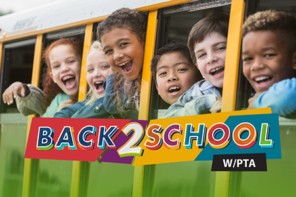For parents, getting ready for the new school year often means checking off a list of supplies, getting medical forms in order, replacing that old lunch box, and considering whether a volunteer role might be a good fit.
Crucially important in this process—but sometimes overlooked—is a close examination of the curriculum their child’s school is using in each subject.
Parents tend to be familiar with textbooks, lessons, homework, quizzes and tests. But it takes all these components and more to make a curriculum. A curriculum is how standards, or learning goals, for every grade and subject are translated into day-to-day activities. Classroom instruction, reading, homework, quizzes and assessments all combine to form curriculum.
Why Curriculum Matters
There is a growing body of research, including several studies by Harvard University, that shows selecting a high-quality curriculum is critical to student achievement.
Over the years, unfortunately, mediocre textbooks have too often been the surrogate, and poor substitute, for quality curriculum—the default around which daily instruction was organized.
But as most states have adopted common college- and career-readiness standards over the past decade, that picture is changing. Educators across the country are recognizing a serious need for rich classroom resources that keep pace with academic expectations and help improve student achievement.
At fast-paced events like back-to-school night, schools don’t always present a lot of detail on the resources they use. Knowing the questions to ask can give parents a voice in ensuring their children have access to the highest-quality materials.

Want to Know What Your Kids Should Be Learning in Each Grade?
Download National PTA’s Parents’ Guides to Student Success! PTA.org/ParentGuides
Here are 10 specific questions parents should ask their child, their child’s teachers, and the principal.
- How does the school evaluate the quality of a curriculum? Independent, unbiased Consumer Reports–style reviews exist. Educational research outlets—including EdReports and Achieve—review curricula and provide objective information about quality. Instead of relying solely on a publisher’s notes, schools should seek out and take into account these valuable reviews.
- Is the material challenging enough for your child’s grade level? Some US textbooks are watered down, providing work that is behind what students in other countries are expected to do academically. All textbook publishers claim their materials are “standards based,” but that isn’t always true. Again, independent reviews can shed light on whether your school’s curriculum is rigorous enough and truly aligned to state standards.
- Is it clear how your child’s learning in each grade connects and builds on the learning they did in the grade before? Educators call this linkage “coherence.” Unfortunately, many textbooks offer a series of disjointed subjects and facts from grade to grade. Ask your child’s teachers to show how an idea learned in an earlier grade is built on in the higher grades, or how an idea learned in the fall comes back in the winter and spring.
- Does the curriculum focus on a handful of important ideas and cover them in depth? A common criticism of US curricula and textbooks is that they cover subjects, “a mile wide and an inch deep.” Ask your child’s teacher to describe the key big ideas that students will learn in each grade, such as in-depth study of fractions in Grade 3 followed by more focus on the topic in Grades 4 and 5.
- In math, are students expected to know the facts and to understand the big ideas behind the formulas? Far too many curricular materials teach students to plug numbers into a formula that makes no sense to them and is not relevant beyond that day’s homework sheet and next week’s test. One way to check for depth of knowledge is to ask your child to explain the ideas and strategies that helped them get the answer to a math problem.
- In English class, is your child reading high-quality books? Too often, curricula have children read basal texts, which are generally just compilations of excerpts from longer narratives and original works. It’s much better if students read directly the original works. These texts should build students’ topical knowledge and challenge students to answer an essential question, such as “Why is it important to understand all sides of a story?”
- During English class, is your child expected to produce evidence-based writing? Developing strong writing skills is critical. An English Language Arts curriculum should present opportunities to read high-quality texts and then build rich writing and speaking skills linked to that content. Teachers should help students examine great writing by exploring word choice, sentence structure and literary style.
- Is your child using a science curriculum that helps them develop a deep and coherent understanding of important scientific ideas? Is your child studying compelling phenomena and learning to explain things like how windmills harness wind and produce light, what the layers of the Grand Canyon reveal about Earth’s history, how elephants sense rainstorms over 100 miles away, and why the Statue of Liberty is changing colors?
- In all subjects, is the curriculum inspiring rich classroom discussions? If your child is spending most of their classroom time listening to the teacher lecture, chances are they are tuned out. Good curriculum in the hands of good teachers stimulates lots of talk and questioning, with students engaging the teacher and one another. One way to find out about the level of classroom discussion is to ask your child what they talked about in school today, not what they learned.
- Finally, is your child coming home from school excited about what they’re learning? We know kids are sometimes disengaged in school. A big reason: The materials they’re using are not pulling them in. Kids aren’t being asked to solve real-world problems in math class. They aren’t reading real books in English class. A good curriculum in the hands of a good teacher is a wondrous thing. You’ll know. If your child is excited about learning, chances are a great curriculum is one reason why.
Nell McAnelly has taught mathematics at the high school and university levels for over 30 years and has received numerous teaching awards. She has three children and six grandchildren. She is co-director emeritus at the Gordon A. Cain Center for STEM Literacy at Louisiana State University and chairman of the Board of Trustees for the nonprofit Great Minds.





